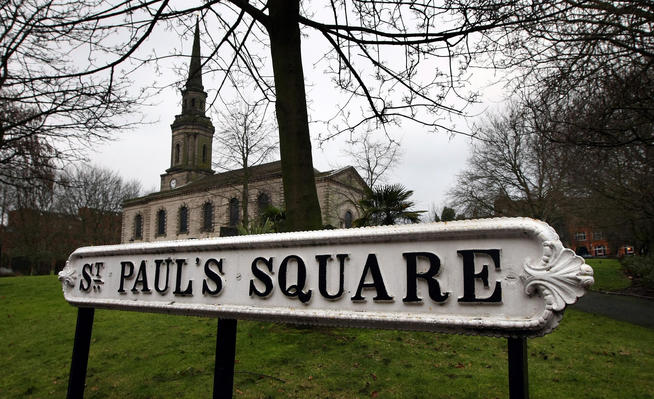Притяжательный падеж в английском за 5 минут!
Содержание:
2. Как строится притяжательный падеж?
3. Особые случаи употребления ‘s
4. Дополнительная information
Что к чему?
В английском существует всего два падежа :
Изначально все существительные в английском стоят в общем падеже. Ниже разберем именно притяжательный падеж в английском языке.
Как строится притяжательный падеж?
Притяжательный падеж в английском используется с людьми и животными, которым принадлежит какой-то предмет, качество или признак. Эту принадлежность следует показывать с помощью апострофа (’) и буквы –s на конце.
Student s’ party – Вечеринка студентов (чья?)
A fireman ’s uniform – Форма пожарного (какая? чья?)
В примерах апостроф и -s меняются местами, а иногда -s отсутствует . Ниже указаны правила для существительных в единственном числе и множественном числе:
Особые случаи употребления ‘s
В английском есть некоторые исключения и сложные примеры использования правила. Ниже приведены основные из них:
1. Если имя или фамилия оканчивается на -s, то возможны два варианта:
2. В сложных существительных добавляем окончание -’s к последнему слову:
Ex-wive s’ alimony – Алименты бывших жен.
3. Если что-то принадлежит не одному человеку, а нескольким, то добавляем -’s к последнему слову в группе :
My son and daughter ’s room – Комната моего сына и дочери (одна комната на двоих).
Но если речь идет о предметах, по отдельности принадлежащих двум людям, то -’s прибавляем к каждому владельцу :
My son ’s and daughter ’s rooms – комнаты моего сына и дочери (2 комнаты, у каждого есть своя комната).
4 . Иногда следует добавить -’s к целой фразе , содержащей существительное:
The secretary of state ’s private room – личная комната госсекретаря.
5. Из неодушевленных предметов следует добавлять -’s к названиям стран, городов и словам ship (корабль), world (мир), nature (природа), earth (земля):
Amsterdam ’s theatre – театр Амстердама.
World ’s organization – мировая организация.
Дополнительная information
Если существительное в единственном или множественном числе обозначает неодушевленный предмет , то лучше использовать предлог of :
The history of the English language – История английского языка.
Ставь лайк ❤ , если не будешь откладывать изучение этой информации на завтра.
Источник статьи: http://zen.yandex.ru/media/id/5d83bdae3f548700ad0b3b07/pritiajatelnyi-padej-v-angliiskom-za-5-minut-5d8e2ffca660d700ae01360b
Упражнения «Притяжательный падеж» (с ответами)
1. Перепишите предложения, используя притяжательный падеж существительных. Переведите готовые предложения.
This car belongs to Sam. (Эта машина принадлежит Сэму.) – This is Sam’s car. (Это машина Сэма.)
These apples belong to the girls. (Эти яблоки принадлежат девочкам.) – These are the girls’ apples. (Это яблоки девочек.)
- This notebook belongs to Jane.
- These suitcases belong to our guests.
- This bedroom belongs to my son.
- These keys belong to Mark.
- This painting belongs to Picasso.
- These poems belong to Pushkin.
- This helicopter belongs to our boss.
- These dictionaries belong to the students.
2. Напишите, чем является ‘s в каждом предложении – обозначением притяжательного падежа существительного или сокращенной формой глагола is.
Ann is David ’s wife. (Аня – жена Дэвида.) — ‘s обозначает притяжательный падеж.
Ann’ s a wonderful wife. (Аня – прекрасная жена) — ‘s является сокращением глагола is (Ann is a wonderful wife.)
- Mary’s day was very hard.
- Peter’s a dentist.
- My son’s girlfriend speaks four languages.
- She’s a talented tennis-player.
- It’s cold today.
- Kate’s uncle has lost his passport.
3. Прочитайте текст и определите родственные связи героев, используя притяжательный падеж.
George and Mary are married. (Джордж и Мэри женаты.) They have 2 children: John and Laura. (У них двое детей: Джон и Лаура.) Mary has a sister, Kelly. (У Мэри есть сестра Кэлли.) George has a brother, Rob. (У Джорджа есть брат Роб.)
George is Mary’s husband. (Джордж – муж Мэри.)
- Mary is ______ wife. (жена)
- George is __________ father. (отец)
- Mary is _________ mother. (мать)
- John is __________ son. (сын)
- Laura is _______ daughter. (дочь)
- John is __________ brother. (брат)
- Laura is _________ sister. (сестра)
- Kelly is _________ aunt. (тетя)
- Rob is __________ uncle. (дядя)
- John is __________ nephew. (племянник)
- Laura is _________ niece. (племянница)
Ответы:
- This is Jane’s notebook. (Это ноутбук Джейн.)
- These are our guests’ suitcases. (Это чемоданы наших гостей.)
- This is my son’s bedroom. (Это спальная моего сына.)
- These are Mark’s keys. (Это ключи Марка.)
- This is Picasso’s painting. (Это картина Пикассо.)
- These are Pushkin’s poems. (Это поэмы Пушкина.)
- This is our boss’s helicopter. (Это вертолет нашего босса.)
- These are the students’ dictionaries. (Это словари студентов.)
- притяжательный падеж (День Мэри был очень трудным.)
- сокращенное is (Петр является дантистом.)
- притяжательный падеж (Подруга моего сына говорит на 4 языках.)
- сокращенное is (Она является талантливой теннисисткой.)
- сокращенное is (Сегодня холодно.)
- притяжательный падеж (Катин дядя потерял паспорт.)
- George’s
- John and Laura’s (или — Laura and John’s)
- John and Laura’s
- George and Mary’s (или – Mary and George’s)
- George and Mary’s
- Laura’s
- John’s
- John and Laura’s
- John and Laura’s
- Kelly and Rob’s (или – Rob and Kelly’s)
- Kelly and Rob’s
Источник статьи: http://s-english.ru/uprazhneniya/possessive-case
Обучающий модуль 1.2 Оборот There is (are). Существительные, притяжательный падеж
1 Уровень
Задание 1. Составьте вопросительные и отрицательные предложения, используя модель
There is some book on the desk. — Is there any book on the desk? — There isn’t any book on the desk.
There are some apples on the table. — Are there any apples on the table? — There are ‘t any apples on the table.
1. There is some bread on the table. 2. There are some chairs in the room. 3. There are some pictures on the wall. 4. There is some money in the purse. 5. There is some news on the radio. 6. There are some oranges in the bag.
You have got three members in your family. — Yes, there are three members in my family.
You can see a boy in the picture. — Yes, there is a boy in the picture.
1. You’ve got a book in front of you. 2. She’s got many foreign books in her library. 3. You can see many countries on this map. 4. They’ve got many pets at home. 5. You’ve got no laboratory on the first floor. 6. You can see a farm near the forest.
Задание 3. Задайте вопросы, опираясь на модель
Model: I have a car — Have you a car?
There is a piano in the room. — Is there a piano in the room?
1. The dog has a bone in his teeth. 2. There is a bone in the dog’s teeth. 3. John and Bill have many friends at school. 4. There are many children in the hall. 5. My brother has a big house.
1. There . a pen and two pencils on the desk. 2. There . two pencils and a pen on the desk. 3. There . a lot of snow in the streets. 4. There . much bread on the table. 5. . there much or little money in the purse? 6. How many pages . there in the book? 7. . there much food in the fridge?
Задание 5. Запишите существительные во множественном числе
A. family, woman, duck, lake, photo, quiz, tomato, play, sheep, uncle, pony, leaf, belief, face, postman, toy, tooth, kerchief, mouse, child, umbrella, curriculum, magazine, knife, life, path, class, roof, grass, cup, city, phenomenon.
B. mother-in-law, butterfly, reading room, standard lamp, inkpot, tape recorder, son-in-law, exercise book, suitcase, blackbird, passer-by, ex-president.
Задание 6. Укажите форму числа имени существительного
Means, a table, fish, fruit, furniture, teeth, clothes, sheep, news, economics, food, feet, a horse, advice, money, bread, police, workers, a child, a clock, a watch, work, information, progress, glasses, mice, hair.
Задание 7. Перепишите существительные в притяжательном падеже
1. the title of the book 2. the economy of the country 3. the work of the next week 4. the holiday of three weeks 5. the toys of my children
2 Уровень
Задание 1. Перефразируйте следующие предложения, употребляя оборот there + be
1. Has she got any meat in the refrigerator? 2. This room has five windows. 3. I have much milk in the cup. 4. We have no canteen at our office. 5. We have got little cheese and butter in the refrigerator.
Задание 2. Поставьте вопросы к следующим предложениям
1. There are some new pupils in our group. 2. There is no book on the table. 3. There were many old houses in our street. 4. There are 4 seasons in a year. 5. There will be a conference next week. 6. There are many large cities in our country. 7. There was nobody in the room. 8. There are 7 days in a week.
Задание 3. Перепишите существительные в притяжательном падеже
1. mother/hat 2. book/student 3. pants/man 4. wives/clothes
Задание 4. Поставьте следующие предложения во множественное число
1. This is a star. 2. That is a flower. 3. Is this a man? 4. That isn’t a goose. 5. It is a sheep. 6. That woman is my sister. 7. There is a table in the room. 8. Has this lady a knife? 9. The child is sitting on the bench. 10. My tooth is white. 11. A potato is a vegetable and a cherry is a fruit. 12. This strawberry is still green.
Задание 5. Напишите следующие предложения в прошедшем и будущем временах
1. There is much snow in winter. 2. There are 5 theatres in our city. 3. There is no lift in our house. 4. There are many new books in our library. 5. There is a map on the wall.
Задание 6. Закончите предложение, используя сложное существительное
a hundred-liter tank; a twenty-storey building; a two-hour flight; a four-day visit; a ten-dollar note; a six-day stay;
Model: Tom’s son is four. He is a four-year old boy.
The State University has 20 stories. It is a … building.
Our visit to London lasted four days. We had … visit.
It took us two hours to fly to Sochi. It was … flight.
He gave ten dollars for the book. He gave … note.
I’m going to stay here for six days. I’ll have … stay.
This tank holds 100 liters. This is a … tank.
Задание 7. Кроссворд. Поставьте следующие существительные во множественное число и впишите ответ в соответствующие поля
1. ребенок 2. мышь 3. зуб 4. гусь 5. нога 6. женщина 7. брат 8. младенец 9. волосы 10. фрукты 11. платье 12. нож 13. жена 14. ключ 15. баран
Источник статьи: http://studfile.net/preview/7143672/page:18/


